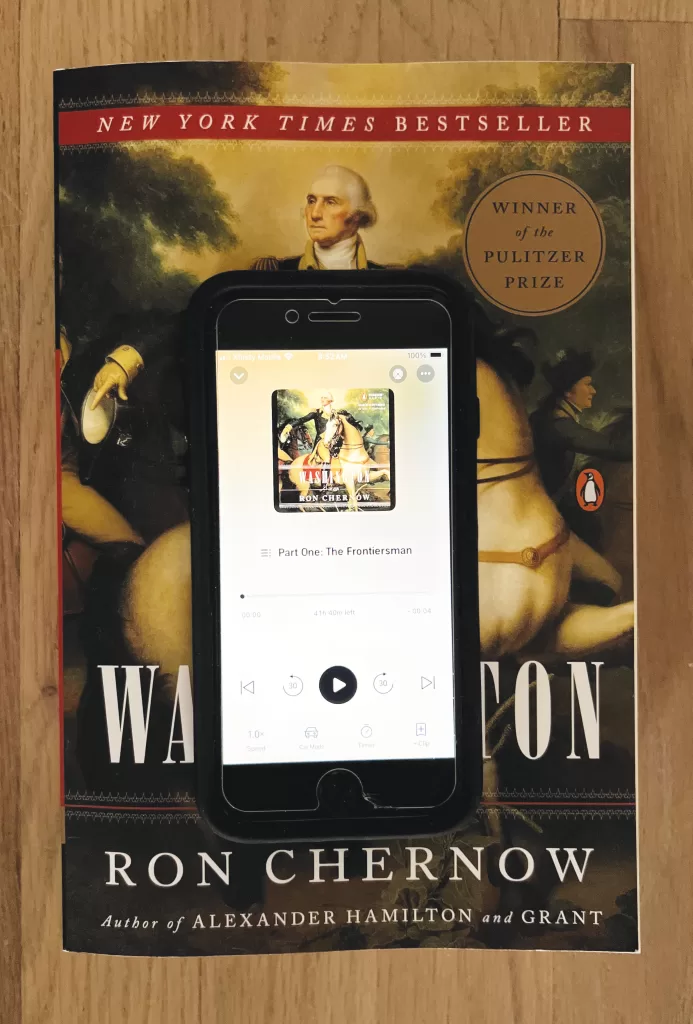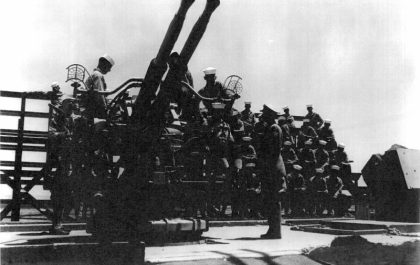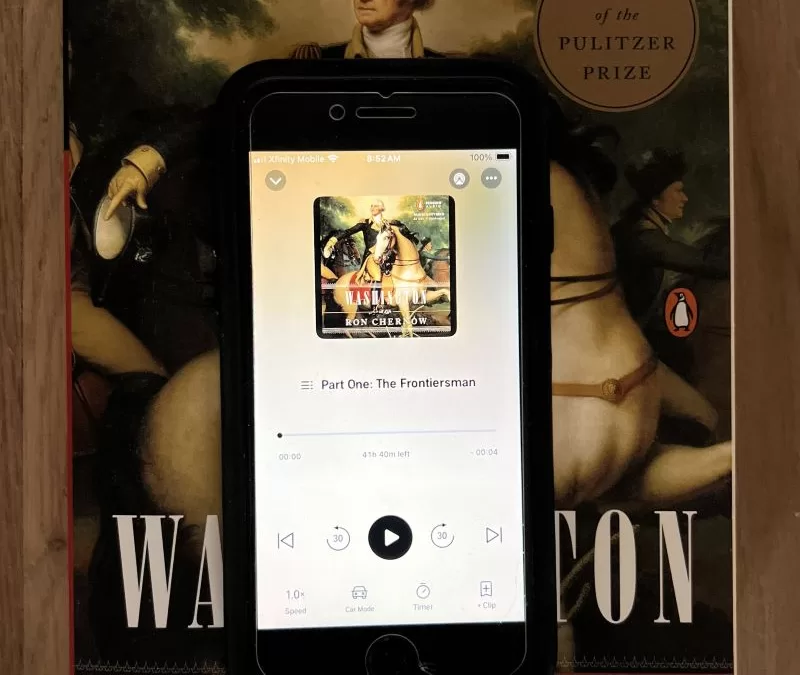
During the second half of the eighteenth century there gathered along the eastern seaboard of North America an enlightened generation of thinkers whose collective will birthed the United States of America and fashioned this extraordinary nation upon a foundation of humanistic ideals.
Lofty words such as these could easily be tagged with an asterisk and down below you might read that this “enlightened generation of thinkers” engaged in behaviors—enslaving other humans would be at the top of that list—that today we do not consider enlightening at all. It’s easy enough to say that they were simply products of the age in which they live and, indeed, this has been done time and again in their defense.
I’ll offer, though, that the only reason we are in a position to make these hindsight judgments is due to the principles upon which they founded this nation. That, had they simply permitted slavery to continue and 1) failed to declare and fight for independence as they did, 2) failed to draw up the US Constitution as they did, and 3) failed to craft institutions that protected that Constitution as they did…we would not now exist, as we do, in a position of liberty within which we are safe to make judgments about them.
Samuel Adams and Thomas Paine played their role; raising the alarm of British oppression and hypocrisy. John Adams and Thomas Jefferson were critical to crafting the scope and nature of, and justification for, independence. An aging and ailing Benjamin Franklin offered his celebrity and sagacity to the cause of independence and republican government. James Madison “fathered” the Constitution more than any other. Alexander Hamilton deployed his intellect—fueled by his ambition—to carry out the fight for independence, then to defend the ratification of the Constitution, and then to secure the nation’s financial stability.
Patrick Henry, James Otis, Roger Sherman, John Hancock, and John Marshall can be added to this growing list of “founding fathers. Abigail Adams and Mercy Otis Warren have been referred to as “founding mothers.” There are more.
However, there is perhaps only a single individual for whom it can be said, “If not for him, there would be no country as we know it.” He was, simply put, the lone indispensable figure in the creation of America.
His remarkable and compelling story is told, like never before, in Washington: A Life (2010) by Ron Chernow. With a Pulitzer Prize for his efforts, Chernow has crafted this incredibly detailed and personal account of George Washington’s life by poring through the records of the Papers of George Washington editorial project housed at the University of Virginia in Charlottesville.
Owing in part to the meticulous record-keeping of Washington himself, and the project’s effort to gather the papers of others in light of their experiences with Washington, there exists now, in a single location, over 140,000 documents that illuminate his extraordinary life. “Strange as it may seem,” Chernow writes in his Acknowledgements, “George Washington’s life has now been so minutely documented that we know far more about him than did his own friends, family, and contemporaries.”
The single volume paper-back edition of Washington is over 800 pages and weighs in at two-and-a-half pounds. In my case, however, I recently spent over three weeks traveling the Southwest and many of those miles flew by as I listened to award-winning narrator Scott Brick’s wonderful portrayal of Chernow’s masterpiece. Not to get lost in the numbers, I think it still relevant to point out that this audiobook comes in at 41 hours and 54 minutes; if only to back up historian Gordon S. Wood’s claim that Washington: A Life is, “The best, most comprehensive, and most balanced single-volume biography of Washington ever written.” Another acclaimed historian, David Brinkley, writes that, “Chernow displays a breadth of knowledge about Washington that is nothing short of phenomenal… a riveting read.”*
Offered up in sixty-seven short chapters, many of which can be listened to as stand-alone episodes, Chernow tells us of Washington as Frontiersman, Planter, General, Statesman, President, and finally, Legend.
This is not just a biography. It is a comprehensive history of the early United States as experienced by someone who participated in, and in many cases directed, a number of the critical and defining moments of the country’s founding.
Washington earned his first military experience in 1753 as a young officer and diplomat defending British interests against the French in the Ohio Valley. The subsequent French and Indian War affirmed Britain’s hegemony in North America and became a catalyst for American independence a few years later.
More than a year before declaring independence, in June of 1775, the Second Continental Congress appointed George Washington as Commander of the Continental Army. In the years that followed, Washington’s leadership was critical to holding the army together against highly trained and well-equipped British forces. He made monumental mistakes but often with the fortune of circumstance on his side that allowed those mistakes to become lessons rather than tragedies. His quiet forceful leadership helped to maintain morale under the darkest of situations. All through the fight, he understood the historical significance of these events and that their outcome would shape the world to come; and took the time to write things down and preserve the record.
When it came to the challenge of framing a new government, George Washington was unanimously elected the president of the Constitutional Convention in 1787, perhaps the only thing the diverse collection of delegates fully agreed upon. Washington insisted that the proceedings be carried out under the strictest secrecy, freeing the delegates to speak their minds without fear of political repercussions. He forged consensus among a variety of conflicting geographic, social, and economic interests. And, in retrospect, he served as a model of executive leadership so exemplary as to convince delegates to properly empower the executive branch in Article II; despite their understandable hesitation to bestow too much authority to a single individual.
While Washington’s leadership at these critical ventures—on the battlefield securing independence and in the halls of government while shaping the future nation—his eight-year tenure as president was nothing less than remarkable. Remember that, despite the high esteem with which we honor the victory in the American Revolution and the brilliance that came together to forge the Constitution, there was no guarantee that the new nation would be able to withstand the pressures that stood to tear it apart from within, particularly over economic differences marked sadly by the growth of slavery in the South.
Outside forces were equally threatening. Spain’s New World empire included the land west of the Mississippi River and to the south in Florida. While Britain had surrendered at Yorktown and recognized the United States in the Treaty of Paris, 1783, the British continued to view the new country with skepticism; evidenced by an ongoing military presence in US territory west of the Appalachian Mountains. Britain also possessed Canada to the north, a colony which had decided against joining the larger North American struggle for independence. Even the French, America’s ally in the Revolution, posed a potential threat to America, especially as that country engaged in their own revolution in 1789, the year Washington was sworn in as president.
In eight years, 1789-1797, the largely a-political Washington established the parameters of the executive branch in relation to Congress. His accomplishments are remarkable. As Chernow writes, by the time Washington stepped down:
“He had restored American credit and assumed state debt; created a bank, a mint, a coast guard, a customs service, and a diplomatic corps; introduced the first accounting, tax, and budgetary procedures; maintained peace at home and abroad; inaugurated a navy, bolstered the army, and shored up coastal defenses and infrastructure; proved that the country could regulate commerce and negotiate binding treaties; protected frontier settlers, subdued Indian uprisings, and established law and order amid rebellion, scrupulously adhering all the while to the letter of the Constitution … Most of all he had shown a disbelieving world that a republican government could prosper without being spineless or disorderly or reverting to authoritarian rule.”
Perhaps most extraordinary is that Washington stepped away from power after two terms, setting a precedent that would last until 1941 when Franklin Roosevelt was sworn in for a third term while Nazi Germany and Imperial Japan were threatening world order.
With the Constitution as his guide and his conscience intact, Washington gave the new country and its grand experiment a chance.
Many stories told about George Washington have taken on a mythical quality; wooden teeth and cherry trees come to mind. What Chernow accomplishes here is to bring Washington down from the ethereal and into the messiness of the human experience; where his mistakes and imperfections make him all the more close to us. Washington’s ownership of slaves and attitudes toward them, his fantastic battlefield blunders, his rotted teeth, his temper; all these blemishes serve as windows into an authentic George Washington who, in the end, demonstrates that American challenges can be overcome.
Alas, as we deal with our own challenges today, Washington also serves as a reminder that sometimes what we need is the level-headed voice of a singular leader whom we all can respect, someone whose aspirations are not driven by personal glory and enrichment but, rather; virtue, grace, and good will.
And, thanks to Ron Chernow, we are also reminded that sometimes extraordinary individuals such as this come forward when they are needed.
*Chernow’s narrative gifts have made him one of America’s finest non-academic, self-taught and wildly popular historians. His award-winning and equally compelling biography of Alexander Hamilton (2004) was the inspiration for the 2015 musical Hamilton by playwright Lin-Manuel Miranda. Chernow became the historical consultant for the hugely successful play after a years-long relationship with Miranda. Chernow has also written biographies of financier J.P. Morgan, business giant John D. Rockefeller, and Civil War general and US President Ulysses S. Grant (reviewed here: https://topanganewtimes.com/2020/12/31/uncle-joe/).





